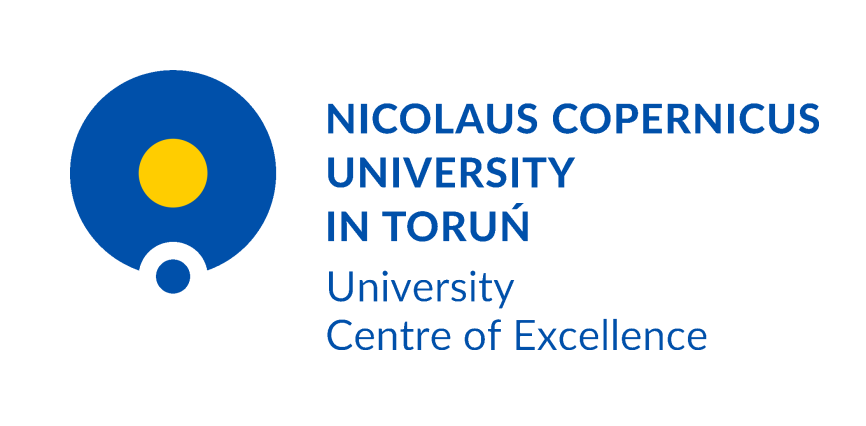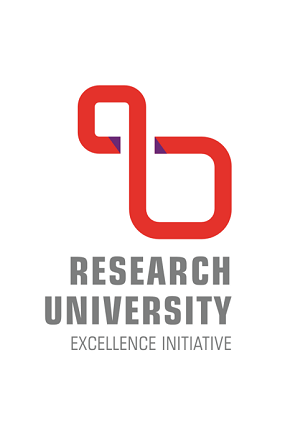SKILLS Boot camp – Bachotek 25-28 June 2025
SKILLS Boot Camp (25 – 28 June 2025, at the Bachotek resort) is a field event where NCU researchers meet, talk to each other, and learn from each other. It provides a series of strictly practical, hands-on workshops, as well as a general meeting point to share experiences and know-how. The main aim of the camp is to unlock NCU’s full potential for horizontal collaboration between labs and researchers representing diverse disciplines, through transfer of knowledge, mapping out resources, and community building.
As an IMSErt event, the SKILLS Boot Camp concentrates on humanities and social sciences, but is not limited to these areas. Participation is free to all IMSErt members, as well as other NCU employees and students depending on availability, and accommodation and food will be provided (see below). Registration of participants will open in May.
The SKILLS Boot Camp is organised under the patronage of NCU vice-rector for research, prof. Adam Kola
SKILLS Boot Camp will be preceded by a smaller academic event AOMS4: Annual Ocular Morphology Seminar 4
REGISTRATION IS CLOSED
SCHEDULE
| Date | Time | Workshop 1 | Workshop 2 | Workshop 3 |
| 25 June | 15:00–18:00 | Statistics – Linear and Logistic Models (Part 1) | Data management and repositories | Commercialization of Scientific Achievements |
| 25 June | 18:00–19:00 | Flash talks and social activities | ||
| 26 June | 10:00–13:00 | Statistics – Linear and Logistic Models (Part 2) | Systematic Literature Review | Cross-cultural issues in scientific collaboration |
| 26 June | 15:00–18:00 | Statistical databases in R | Using AI and LLM in research | Biopotentials (heart rate, breathing rate, EDA) |
| 26 June | 18:00–19:00 | Flash talks and social activities | ||
| 27 June | 10:00–13:00 | From Screens to Science: Accessing and Analysing Internet Faces | Collaborating with NGOs (cancelled) | VR/XR for Scientific Experiments |
| 27 June | 15:00–19:00 | Flash talks and social activities | ||
| 28 June | 10:00–13:00 | Science for policy (cancelled) | Applying for grants | Communicating with the deaf and hard of hearing |
FLASH TALKS AND SCIENCE SPEED DATING
Participants are invited to present their research as flash talks every day after 18:00.
We’ll also organise “science speed dating” sessions for initiating new interlab collaborations.
SOCIAL ACTIVITIES
Participants are welcome to self-organise social activities, i.e. sign up for as well as propose and lead their own activities, such as yoga, beach volley, pool billiards, table football, mushroom picking, movie night, campfire activities, etc. etc.
LOGISTICS
Accommodation – accommodation will be provided free of charge in shared 4-person wood cottages. Private (individual) accommodation is not provided.
Food – will be served in the cafeteria: breakfast at 9:00, lunch at 13:00, dinner at 18:00.
Transport – participants are advised to arrange their own transport from / to the venue and carpool with other participants via our coordination Google Sheet.
Internet – two open WiFi networks are provided – use the Bachotek one as a default and Starlink as a backup.
WORKSHOP DESCRIPTIONS
An Introduction to Systematic Literature Review
Yen Ying Ng
10 participants, English, ca. 3 hrs
Systematic Literature Review (SLR) is a structured and methodical approach to reviewing existing research on a specific topic. Unlike traditional narrative reviews, which may be selective and subjective, an SLR follows a comprehensive, transparent, and reproducible process to identify, evaluate, and synthesize all relevant studies on a particular subject.
Statistics – Linear and Logistic Models
Marek Placiński
10 participants, English (optionally PL), 2x 3 hrs
The goal of the workshop is to learn the basic skills needed to analyze quantitative data using linear and logistic models. The class will be held in R, with knowledge of R not being a prerequisite for taking part in the workshop. Issues will be presented on sample data from EVO Group studies, so the class will be practical.
Using AI and LLM in research
Bogna Bylicka
12 participants, English (optionally PL), 2-3 hrs
This workshop explores how artificial intelligence and large language models can enhance everyday tasks in research, from literature review and data analysis to scientific writing. We will test different AI platforms, including both open-source and proprietary LLMs, and discuss their strengths and weaknesses for various research applications. This is a hands-on session, so please bring your laptop!
Physiological measurements with BIOPAC and Acqnowledge
Juan Olvido Perea-García
12 participants, English, 3 hrs
Attendants to this workshop will be briefly introduced to physiological measurements; what they actually are and how they can be interpreted in psychological research. The focus will be however on collecting these data using Biopac hardware. We will develop a data-collection pipeline from start to finish. The measurements we will be collecting are blood flow (with photoplethysmograph), electro-conductivity of the skin, and breathing rate. We will also employ electrocardiogram as synchronizing signal to demonstrate how the apparatus can be flexibly utilized to fulfill functions beyond what the manufacturer intends.
Communicating with the deaf and hard of hearing
Monika Boruta
The aim of the workshop is 1) to familiarise participants with the problem of deafness, with d/Deaf culture and education in Poland, with the notion of iconicity and with reserach in sign languages; and 2) to teach participants basic syntactic structure of Polish Sign Language (PJM) based on phrases that can be useful in everyday life. The workshop will be based on pair- and group-work.
Cross-cultural issues in scientific collaboration
Aldona Glińska-Neweś & Paweł Brzustewicz
The workshop is intended to discuss our experiences with cross-cultural issues encountered in scientific collaboration. Because one’s own cultural perspective matters in this case, the workshop is conducted in Polish. The workshop will be supported by materials generated during the CAPIRE project; specifically, we will use so-called critical incidents reflecting cultural differences experienced by Poles cooperating with selected foreigners (NL, D, F, I).
Using Virtual Characters in 3D Engines for Scientific XR Experiments
Jonas Nölle
This workshop will serve as a starting point for researchers interested in the use of virtual humans (VHs) in 3D engines for XR experiments (e.g., in virtual or mixed reality). We will explore how to customize characters using MetaHumans for an XR scene and then focus on manipulating VH morphology, with a special emphasis on the eyes. This will be a practical, interactive session where I will demonstrate key steps. While all are welcome to participate, the technology is demanding. For those who wish to follow along on their own laptops, please ensure you have a powerful enough laptop and Unreal Engine 5.6 downloaded and installed before you arrive. The installation files are big!
When installing, be sure to include the MetaHumans plugin (manual tick). This video provides a guide. For those unable to run Unreal, a simpler, browser-based version will be available to explore. If there is time, we can also discuss Unity as an alternative 3D engine, which offers a scripting environment that may be familiar to users of Psychopy and similar software. The primary goal of this workshop is not to provide a comprehensive tutorial, but to stimulate discussion on how VHs, XR, and 3D technologies can be used to address our collective research questions.
Collaborating with NGOs
Michał Bomastyk
……………
Data management and repositories
Kamila Perlik
The workshop will be taught in Polish. During the course, participants will learn about the data life cycle and data management. They will get familiar with the FAIR principles and guidelines for preparing data for deposition. We will focus on the principles of selecting the appropriate repository and choosing the right licence for the deposited data. Finally, we will discuss the correct way to deposit data sets.
Get a grant! Practical workshop for early-career researchers
Sławomir Wacewicz
6 participants, English or Polish, ca. 2 hrs
In this practical workshop, we’ll identify key aspects of successfully applying for grants, then we’ll work in a small group, discussing examples from the participants’ proposals (past or currently under preparation)
Science for policy – your way in
Adam Izdebski
10 participants, English, ca. 3 hrs
Many scientists believe they do something of relevance to society, but they have no idea how policymaking and politics work – and how to make their way into this world. The goal of the workshop is, first, to share some first-hand experience of the convener at the EU level (EU Commission, EU Parliament), second, to work together on the concrete ideas that the participants will come with, and third, map resources that could be helpful for making first steps into the science for policy world.
From Screens to Science: Accessing and Analysing Internet Faces for Social Psychology Research
Vojtěch Fiala
13 participants, English
Facial characterisation is a fundamental component of human social psychology, serving as an unavoidable entry point in interpersonal communication. This case has long been recognised by marketers and film producers, who have rarely let ethical concerns stand in the way of saturating audiences with high-quality, highly appealing faces. In recent years, this trend has intensified online – particularly on social media. In this hands-on course, I will demonstrate how to access facial stimuli from the internet and process them into a format suitable for research purposes. I will also present examples of the data generated during this process and showcase the types of analyses they can support. As internet-sourced faces constitute publicly available personal data, we will also discuss the legal and ethical considerations involved in their use. Finally, I will briefly introduce how the tools of geometric morphometrics, demonstrated in the course, can be applied to other types of human artefacts (evolutionary psychology, archaeology, cultural evolution).
From Thought to License – About Commercialization of Scientific Achievements
Agnieszka Hamerlińska
20 participants, Polish English, ca. 3 hrs
Praktyczny warsztat rozwijający umiejętności przekładania dokonań naukowych na proces tworzenia produktów według następujących etapów: 1. Znalezienie pomysłu 2. Uzasadnienie tworzenia 3. Kreowanie produktu 4. Testowanie materiału 5. Patent i komercjalizacja. Praca w 5-os. grupach.
Working with public statistical databases in R
Czesław Adamiak
During the course, students will learn how to access public statistical data through automated interfaces (APIs), as well as how to pre-process and visualize it. The course will focus on accessing Eurostat database, using R as the programming language to send API queries, pre-process datasets and create simple visualizations. Prior knowledge of R is beneficial but not required. Example code will be provided, and the level of instruction will be adapted to the participants’ experience. The skills learned can be applied in a wide range of social, economic, and regional studies.


 ul. Fosa Staromiejska 3, 87-100 Toruń
ul. Fosa Staromiejska 3, 87-100 Toruń